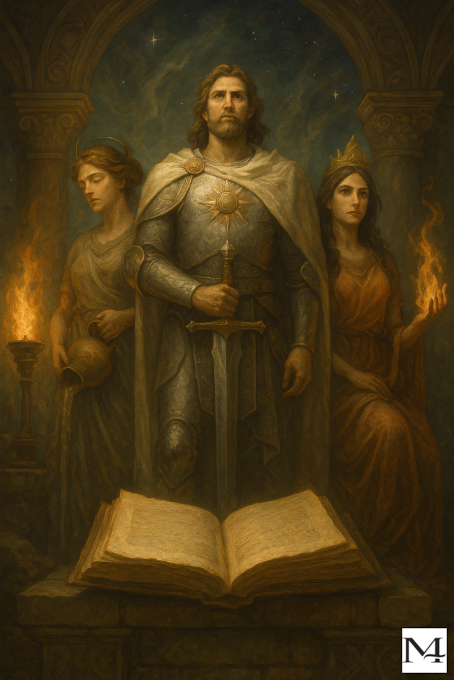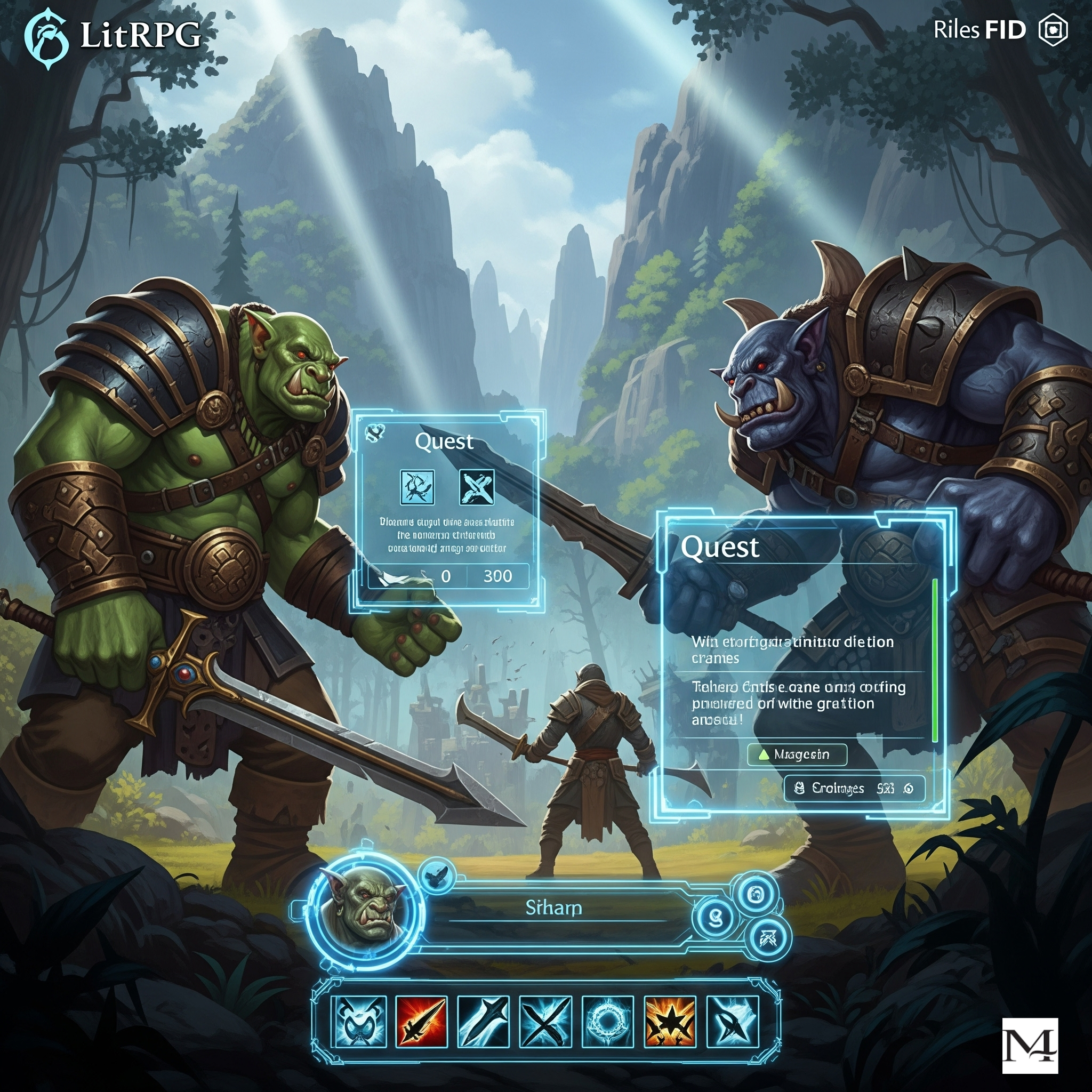Introduction: When Stories Became Sacred
Before there were nations or laws, there were stories—divine tales explaining the stars, the seasons, and the soul. Myth and religion form the oldest code of human belief, and they’ve shaped everything from kingships to calendars.
In fantasy and LitRPG storytelling, gods and religions don’t just add color—they define cultures, drive politics, and even serve as game mechanics. In this post, we’ll look at how myth shaped real-world human evolution and how you can harness its power to breathe divine life into your fantasy worlds.
The Cultural Impact of Myth and Religion
1. Explaining the World
Early societies used gods and stories to make sense of the chaotic world around them. Thunder? That’s the voice of the sky god. Plague? The wrath of a neglected deity.
Real-World Example:
The Greek god Apollo was both healer and plague-bringer—dual roles that reflected human anxieties about medicine and mortality.
Fantasy Application:
In the fantasy world of Menelon, the Goddess Urilia represents the complex reality of "moral truth", and the unpredictable forces that civilizations must confront, whether they like it or not.
2. Forming Moral Codes and Societies
Religions gave rise to laws, rituals, and social norms. Who governs? What is sacred? What is forbidden? The answers often came from divine authority.
Real-World Example:
The Ten Commandments shaped not just Jewish and Christian thought, but much of Western legal tradition.
Fantasy Application:
The Church of the Guardian Paladin, in the world of Menelon, mirrors this role—codifying honor, justice, and martial discipline as divine commandments, influencing both behavior and political alignment.
3. Unifying People Through Shared Myth
Religion has always been a unifying force. Shared myths forge identity, inspire art, and build nations.
Real-World Example:
The Norse sagas weren’t just stories—they were the cultural backbone of Viking identity, legitimizing war, exploration, and hierarchy.
Fantasy Application:
On Menelon, Valïa offers a stark contrast to Urilia—a goddess of reason and balance. His church reflects a society rooted in the simplicity of daily life, logic, and a measured life. These divine oppositions shape geopolitical tension and provide a natural framework for theological conflict.
Religions as Living Systems
Just like cultures, religions evolve. Gods gain or lose relevance. Sects split. Heresies spread.
LitRPG Insight:
In a LitRPG, this dynamic evolution can be part of the game mechanics. Imagine a player-triggered schism in a major church that alters available abilities or unlocks unique divine quests.
Design Tip:
Treat your in-world religions like political ecosystems. Let them respond to player actions, economic shifts, or the rise of competing ideologies.
Building Believable Gods in LitRPG and Fantasy
1. Anchor the Divine in Culture
Don’t invent gods in a vacuum. Build deities who reflect the values, fears, and landscapes of their worshippers.
Urilia represents the complexity of emotional and moral truth and the chaos it can at times produce—perfect for a culture that prizes personal expression over hierarchy.
2. Use Religion as a Faction System
Let religions function like guilds. Players can align with a church, earn divine favor, and unlock miracles—while risking divine wrath for disobedience.
3. Include Conflict, Heresy, and Reform
Religions are not monolithic. Include schisms, lost texts, rogue prophets, and holy wars. These elements enrich narrative arcs and give players meaningful choices.
In your world, perhaps followers of Valïa face growing pressure from a radical sect of Urilia’s worshippers who preach that logic is itself a form of tyranny.
External Resources for Inspiration
- Godchecker – A fun and searchable encyclopedia of deities across cultures.
- World Anvil – Tools for building and tracking religious systems in fantasy worlds.
- Mythopedia – A deep dive into global myths and the stories behind gods, monsters, and heroes.
- Pantheon.org – A scholarly index of global mythology.
Final Thoughts: Make Your Gods Matter
Religion isn't just window dressing in a fantasy world—it’s the skeleton of culture. Whether you're writing novels or building LitRPGs, crafting a divine system rooted in mythic logic and sociopolitical reality will make your world feel alive.
Explore more from the world of Menelon here at Metaphor Publications:
The Menelon Gazette
If you are interested in more content like this (plus freebies, access to premium content etc.) subscribe to our newsletter for more from the world of Menelon and its creators!




